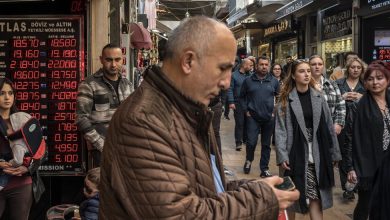North Korea Tests New ICBM, Escalating Hostilities

SEOUL — North Korea on Thursday launched its first intercontinental ballistic missile since 2017, dramatically escalating tensions with the Biden administration at a moment when the world has been gripped by the devastation of war in Ukraine.
The missile flew for 71 minutes and landed in Japanese waters, according to Makoto Oniki, Japan’s deputy defense minister, who described the missile as a new kind of ICBM.
The launch was North Korea’s boldest weapons test in years and marked the end of the self-imposed moratorium on nuclear and ICBM tests that the country’s leader, Kim Jong-un, announced before he embarked on diplomacy with President Donald J. Trump in 2018.
North Korea conducted its last ICBM test in November 2017, after which it claimed that its nuclear-tipped ICBM could strike any part of the continental United States. Earlier that year, it tested what it called a thermonuclear bomb in its sixth underground nuclear test. Since his diplomacy with Mr. Trump ended in 2019 without any agreement on ending sanctions or eliminating the North’s nuclear arsenal, Mr. Kim has vowed to build more diverse and powerful nuclear missiles.
Before the launch on Thursday, the United States and South Korea had warned that North Korea might test its new Hwasong-17 ICBM under the guise of a satellite launch. The Hwasong-17, North Korea’s largest known ICBM, was first unveiled during a military parade in October 2020, but as of Thursday it had never been tested.
North Korea is the first United States adversary since the Cold War to test both an ICBM and an alleged hydrogen bomb, according to Vipin Narang, an expert on nuclear proliferation at MIT. The launch on Thursday was expected to invite swift condemnation from Washington and its allies. But given their tensions with the United States, it was unclear whether Russia and China would agree to impose more U.N. Security Council penalties on North Korea.
After North Korea’s nuclear test and three ICBM tests in 2017, the United States, China and Russia, all of which hold veto power in the Security Council, set aside their differences to impose devastating sanctions, agreeing to ban all U.N. member countries from importing any of North Korea’s key exports, such as coal, iron ore, fisheries and textiles. North Korea was also banned from importing more than four million barrels of crude oil for civilian purposes a year.
Its annual import of refined petroleum was capped at a half million barrels, the council said in a resolution adopted in December 2017. In that same resolution, the Security Council decided that, were North Korea to conduct more nuclear or ICBM tests, it would “take action to restrict further” the export of petroleum to the already heavily sanctioned country.





